Today, the importance of application modernization is rising. As legacy systems struggle to keep pace with emerging market demands and organizational needs. So, businesses need effective methods to upgrade their outdated applications to stay competitive and thrive consistently. And this is where application modernization stands out as a powerful tool.
Legacy app modernization is a transformative process that not only helps companies revamp their outdated system. But also, it is the key to unlock new possibilities. It helps businesses ensure their software application remains future-proof.
If your business software or mobile application needs upgradation with current technologies, here we will discuss the top application modernization trends. In this article, you will also learn the key legacy app modernization strategies to effectively upgrade your outdated app into a new-age application.
But before we delve into this, let us understand
Table of Contents
What is Meant by Legacy Application Modernization?
Application modernization is the process of updating, renovating, or transforming legacy or outdated software applications. It focuses on improving functionality, performance, and alignment with current business needs and technological advancements.
App modernization involves upgrading legacy systems, rearchitecting applications, or migrating them to modern platforms. This process ensures applications remain relevant, efficient, and capable of meeting evolving market demands. The main objectives of application modernization include:
- Enhancing performance
- Improving user experience
- Increasing scalability and flexibility
- Enabling integration and interoperability
- Reducing maintenance costs
- Enhancing security and compliance
Why Application Modernization is Important for Businesses?
Application modernization is highly essential for any business or organization. It not only addresses immediate technological needs. But also lays the foundation for sustained growth, innovation, and competitiveness in today’s rapidly changing digital landscape. Since digital transformation is disrupting industries, new technology trends leave a great impact on consumer behavior and business practices.
And this makes it necessary for businesses to upgrade their existing software applications as per current customer’s demands. Whether it is an enterprise, startup, or small business, every business size needs to perform consistently to achieve sustainable growth.
If existing applications have outdated features or are built on old architecture, they might not perform with the required efficiency and productivity. With legacy applications, it becomes difficult for businesses to satisfy customer experience.
Therefore, businesses need to modernize their application with cutting-edge technologies. This process enables business entities to leverage emerging technology trends and take a competitive advantage as well. If you look at the recent market data, businesses have embraced application development services at a large scale.
As per the latest research report of Market Research Future (MRFR), the market of application modernization services is poised to attain $24.8 Billion at a CAGR of 16.8% by 2030. In a recent State of the CIO Study 2023, application modernization is the third highest initiative for CIOs. Many enterprises and startups look for top digital transformation companies to upgrade their existing applications.
So, why ultimately application modernization matters for businesses? Here are the below reasons.
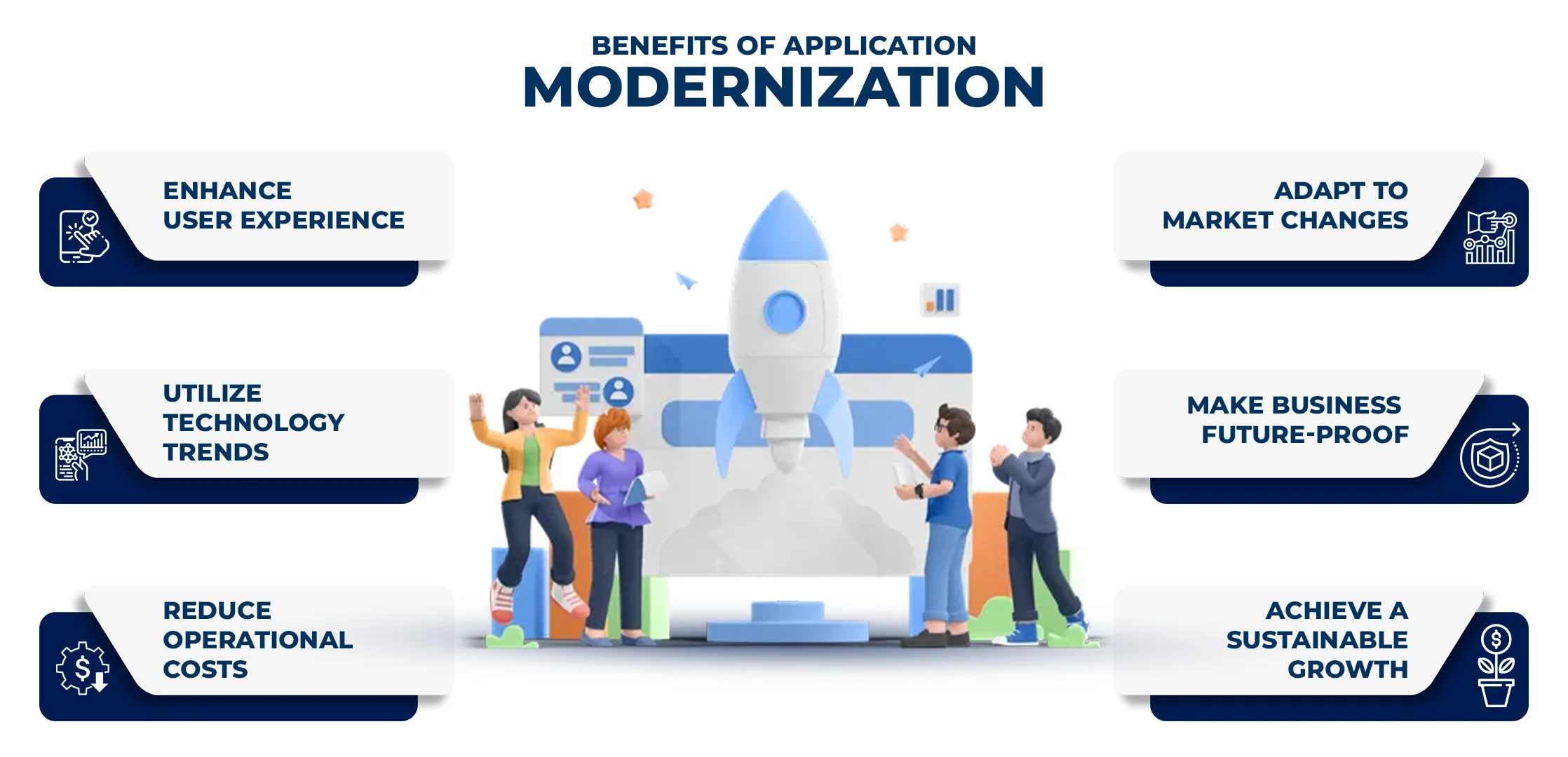
Adaptation to Market Changes
Modernization allows businesses to swiftly adapt to market changes and customer demands. With scalable and agile applications, companies can pivot their strategies more effectively. And respond to market dynamics faster.
Utilizing New Technologies
Legacy systems often lack the capability to leverage newer technologies. Modernization facilitates the adoption of cloud computing, AI, microservices, and other cutting-edge solutions. This, as a result, gives better performance, faster processing, and greater operational efficiency.
Cost Savings and Resource Optimization
Outdated systems require more maintenance and support. Thus, it leads to higher operational expenses. Modernized applications are more efficient. Therefore, this requires fewer resources and reduces overall IT costs.
Improved User Experience and Customer Satisfaction
Today’s users demand seamless experiences. Modernization helps create intuitive interfaces, faster response times, and personalized experiences. As a result, it could help organizations enhance customer satisfaction and loyalty.
Adapting to Mobile and Digital Trends
With the shift towards mobile and digital platforms, modernized applications cater to these preferences. Businesses can leverage emerging trends and ensure their applications offer positive interaction.
Reducing Security Risks
Legacy systems are often vulnerable to security threats due to outdated security measures. Modernized applications incorporate robust security protocols. Thus, it reduces the risk of breaches and ensures compliance with data protection regulations.
Enabling Innovation
Modernized applications provide a fertile ground for innovation. They allow for the integration of emerging technologies. As a result, businesses can experiment, iterate, and innovate faster. By integrating the latest technology trends they can achieve better growth without hindering operations.
Future-Proofing
Modernization ensures that businesses are prepared for future advancements and changes in the technological landscape. It enables them to remain relevant and adaptable in the face of evolving industry trends.
Top Application Modernization Trends That Businesses Can Leverage
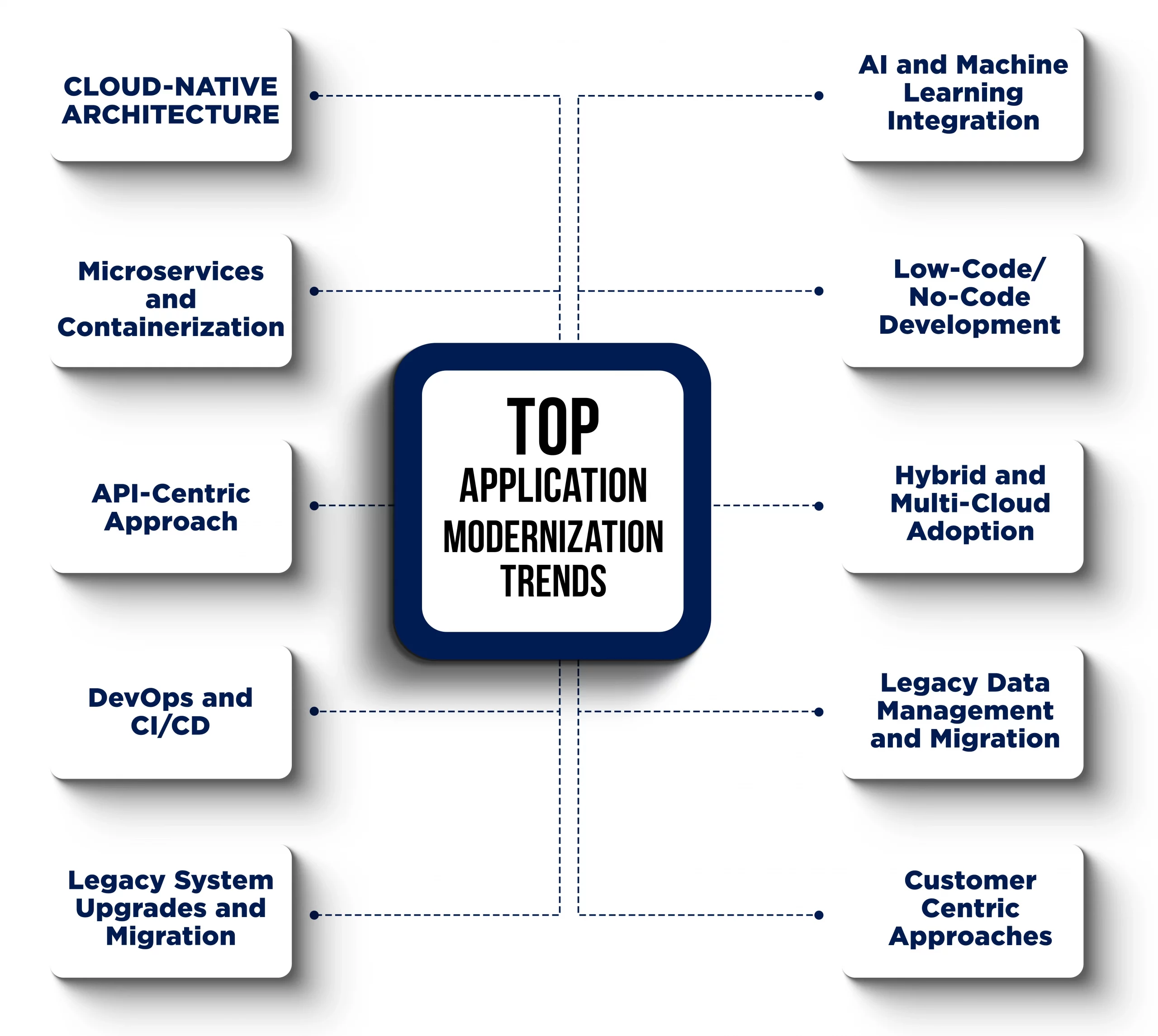
Cloud-Native Architecture
Cloud-native architecture involves building applications specifically designed to operate optimally in cloud environments. It enables scalability, flexibility, and portability across different cloud platforms. This approach often leverages microservices, containers, and orchestration tools (e.g. Docker and Kubernetes).
Microservices and Containerization
Microservices break down monolithic applications into smaller, independent services. Containers provide an isolated runtime environment for applications. It provides easier maintenance, scalability, and faster deployment. Microservices enable independent development and scaling of components, while containers ensure consistent operation across various environments.
API-Centric Approach
Application Programming Interfaces (APIs) serve as the backbone for application modernization. It allows seamless communication between different systems. API integration facilitates integration between disparate systems. Therefore, this supports interoperability. And also enables the development of modular and interconnected applications.
DevOps and CI/CD
DevOps practices emphasize collaboration between development and operations teams. Continuous Integration/Continuous Deployment (CI/CD) pipelines automate software delivery processes. DevOps accelerates the development cycle and ensures faster time-to-market. It also maintains product quality through automated testing and deployment.
Legacy System Upgrades and Migration
Many enterprises still rely on legacy systems. This hinders them from staying competent in the evolving market. Legacy system transformation ensures compatibility with modern technologies. It improves performance and reduces technical backwardness. Cloud migration or newer platforms allows for greater scalability and cost-efficiency. Therefore, legacy app modernization is among the top trends in the market.
AI and Machine Learning Integration
There is a high demand for the integration of AI and machine learning algorithms into applications. Companies deploy AI & ML in mobile app development for automation, predictive analytics, and intelligent decision-making. AI-powered apps optimize performance and automate tasks by analyzing vast amounts of data.
Low-Code/No-Code Development
No-code and low-code platforms are in great demand. They allow app developers with limited coding skills to build full-fledged applications using in-built elements. It boosts application development and empowers citizen developers. This eventually fosters innovation by enabling rapid prototyping and deployment.
Hybrid and Multi-Cloud Adoption
Today, many businesses opt for hybrid or multi-cloud strategies in their application modernization. They now look to migrate to modern cloud services to seek better flexibility and data storage capability. By leveraging services from different cloud providers, they are able to achieve better efficiency. With hybrid or multi-cloud adoption, they can prevent vendor lock-in, and optimize performance by leveraging the strengths of different cloud environments.
Legacy Data Management and Migration
It is one of the top App Modernization trends in the current market. Since apps have to deal with vast amounts of data, businesses need effective ways to manage the large collected amount of data. Application modernization allows businesses to smartly handle their legacy data. And migrating it to cloud-based storage and implementing data governance frameworks. As a result, this helps in ensuring data integrity, accessibility, and security while unlocking the potential of data analytics and insights.
Customer-Centric Approaches
Customer satisfaction is among the top priorities for all businesses. As technology evolves, customer behavior also changes. As a result, businesses need to modernize their application to meet customer’s expectations. Here, App modernization helps businesses prioritize user experiences by offering intuitive interfaces, personalization, and responsiveness. It contributes to enhanced customer satisfaction, loyalty, and engagement. Consequently, it drives business growth and success.
Steps for Effective Application Modernization Strategy
Effective application modernization strategy involves comprehensive planning and seamless execution. Businesses that want to obtain specific business objectives need to understand application modernization for successful execution. Below we have explained the key steps for implementing an effective application modernization strategy.
1. Assessment and Prioritization
Evaluate your existing application to identify its strengths, weaknesses, and compatibility with modernization efforts. Assess the business value, technical debt, and potential ROI for each application. Try to prioritize applications based on criticality, impact on business goals, complexity, and feasibility for modernization. This will give you a clear roadmap for implementing app modernization.
2. Define Clear Objectives and Roadmap
Define specific goals for using application modernization services. Whether it’s improving performance, enhancing security, reducing costs, or enabling scalability. Develop a detailed plan outlining the sequence of activities, timelines, milestones, etc. And also resources required for each phase of modernization.
3. Select Modernization Approaches
Decide whether applications should be migrated to the cloud or newer platforms to leverage their capabilities. You should decide whether to restructure the application code or architecture. This will help you align with modern design patterns, microservices, or other architectures.
4. Adopt Agile Development and DevOps Practices
Embrace agile development methodologies to iterate, collaborate, and respond to changes swiftly during the modernization process. Implement DevOps practices to streamline collaboration between development and operations teams and automate workflows. This will ensure continuous integration and deployment.
5. Incremental Approach and Testing
Break the application modernization process into smaller and more manageable phases. It will minimize disruptions and facilitate continuous improvement. Conduct thorough testing at each stage of modernization to ensure functionality, performance, security, and compatibility.
6. Focus on Security and Compliance
Integrate robust security protocols to protect your legacy applications from cyber threats. Make sure your application is foolproof with data privacy and compliance with regulations. Analyze whether the app modernization meets industry-specific compliance standards and data governance regulations.
7. User-Centric Design and Experience
Try to embrace the user-centric approach in your legacy app modernization. Prioritize user experience by designing intuitive interfaces, increasing responsiveness, and providing personalized experiences. For this, you can gather feedback from users during and after app modernization. You can also incorporate their insights into further iterations for continuous improvement.
8. Invest in Skills and Resources
Adopt a dedicated skill development and app modernization strategy. Provide training or hire dedicated app developers who possess expertise in modern technologies. They are well-versed in utilizing the latest tech technologies for successful application modernization. For cost optimization, you can allocate sufficient budget, manpower, and time for the modernization process.
Final Thoughts
Application modernization is a powerful and smart method to keep up your legacy or existing application with emerging changes. It enables you to adopt updates quickly and effectively by modernizing apps with cutting-edge features. Businesses that seek to achieve consistent growth, must adopt application modernization.
The above top app modernization trends empower organizations to revamp their outdated applications and build market-ready apps. However, since these technologies require expertise, you should look for a professional company that can assist you in implementing successful application modernization.
How RipenApps Can Help You Modernize Your Existing Application?
RipenApps is a leading digital transformation and mobile app development company. We have a big in-house team of qualified developers and tech experts who specialize in transforming outdated or existing applications with advanced technologies. Our application modernization process is equipped with state-of-the-art practices. Here, focus on building apps that not only meet today’s market needs but also exceed tomorrow’s user expectations.


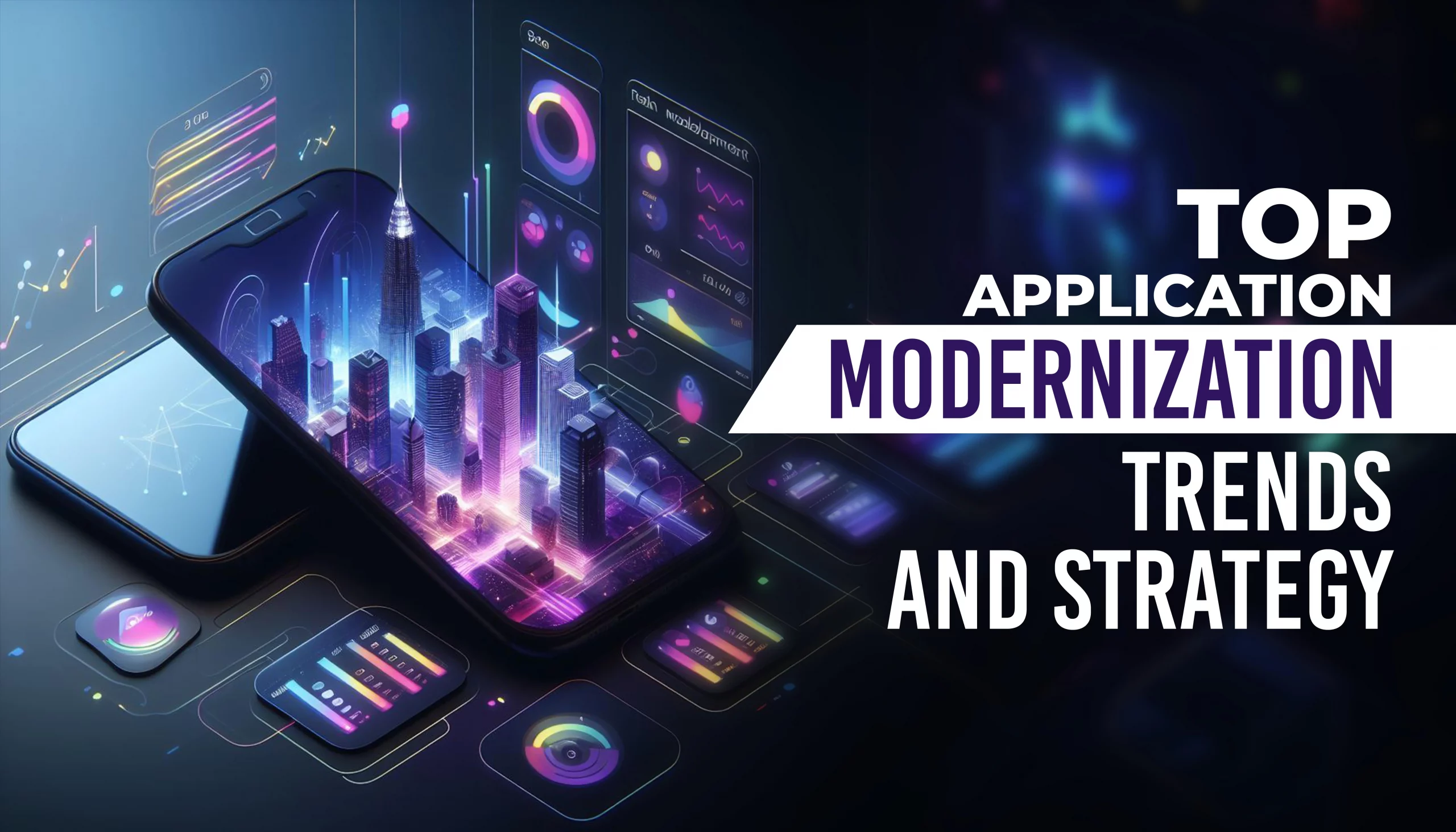





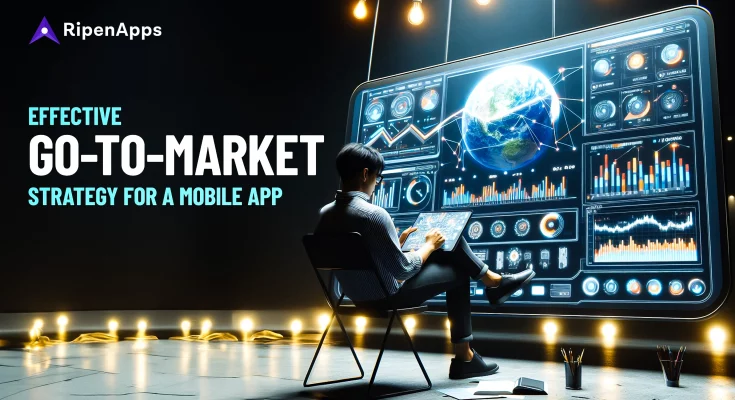
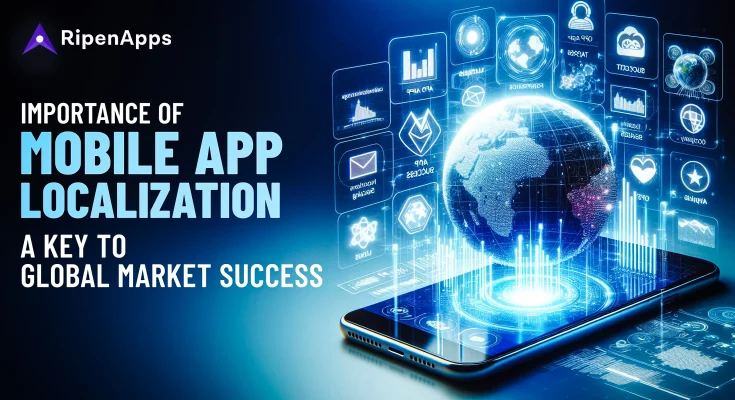
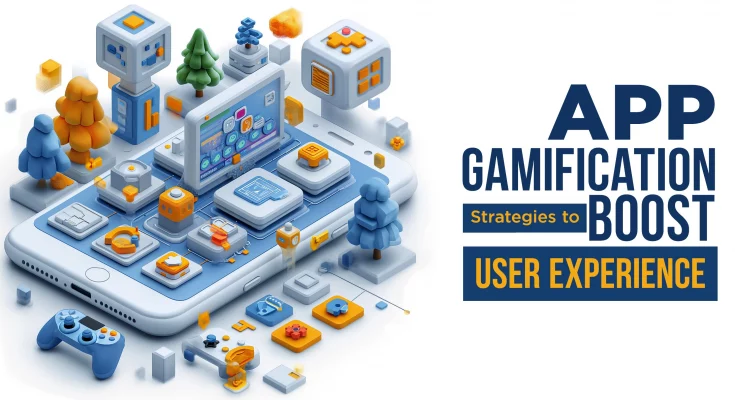

 India
India USA
USA Australia
Australia Canada
Canada UK
UK UAE
UAE